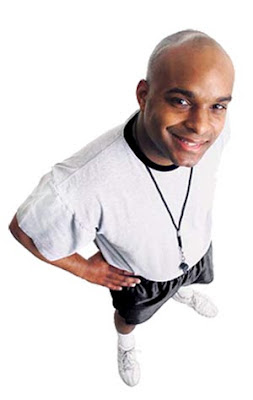BUT, if it wasn't ...
This entry tries to summarise some important research studies in sports coaching and related areas like physical education, youth sport and sport development. I have also included some lists that just seem interesting to sporty folk. In all cases, the summaries are in the form of lists.
My ambition in doing this is twofold: I hope this lists are useful and interesting in their own right. But I also hope the reader will go from here to the original research papers, many of which readable.
The lists are not in any particular order. Why? Because it seems to me that we come across some of the most insightful ideas when we are looking for something else.
[Oh, I should acknowledge straight away that there are nowhere near 101 lists!]
 What are the minimum requirements of sports programmes aiming to foster positive sporting experiences for young people?
What are the minimum requirements of sports programmes aiming to foster positive sporting experiences for young people?- a clear mission;
- developmentally appropriate content;
- a safe and healthy environment;
- suitably trained staff;
- integrated family and community partners; and
- on-going assessments.
Sources: E.g., Bodily, S., and Beckett, M. K. (2005) Making out-of-school-time matter: Evidence for an action agenda. Santa Monica, CA: Rand Education and Rand Labor and Population. Coatsworth, J. D., and Conray, D. E. (2007) Youth sport as a component of afterschool programs. New Directions for Youth Development, 115, pp. 57-74. Eccles, J. S., and Gootman, J. A. (eds) (2002) Community programs to promote youth development. Washington, DC: National Academy Press.
Why were Olympians first attracted to their sport?
- a love of the sport
- an intrinsic love of activity
- early success in the sport
Once introduced to their sport, why did these Olympians continue to participate?
As the level of competition increased, why did these Olympians continue to participate?
- the challenge and love of competition
- a desire to be successful
- the need for a competitive outlet
- fun
What are the most important qualities of a coach?
- the ability to teach
- the ability to motivate or encourage
- training knowledge
- skill competence
- strategic knowledge of sport
- assistance with goal setting
- management and organisational skills
- assistance with balancing the lives of athletes
Source: Gibbons, T., Hill, R., McConnell, A., Forster, T., Moore, J. (2002) The path to excellence: a comprehensive view of development of U.S. Olympians who competed from 1984-1998. Colorado Springs, CO: United States Olympic Committee.
How do Female Athletes Want their Parents to Behave?
The study found three categories of parental behaviour across different phases of competition (before, during, after):
- preparation for competition
- parental support and, encouragement during competition
- the provision of feedback after competition
Source: Knight, C. J., Neely, K. C., & Holt, N. L. (2011) Parental Behaviors in Team Sports: How do Female Athletes Want Parents to Behave? Journal of Applied Sport Psychology, 23(1), pp. 76-92.
- Being with and Making Friends
- Developing Physical Fitness
- Learning and Improving Skills
Source: Wald, J. (2003) Parental Motivations for Enrolling their Children in a Private Gymnastic Program. The Sport Journal. 6(3).
World's Most Popular Sports (for fans)
- Soccer / Football
- Cricket
- Field Hockey
- Tennis
- Volleyball
Source: http://www.mostpopularsports.net/

Highest Paid Sportspeople (2011-2012)
- Tiger Woods, golf - $75 million
- Kobe Bryant, basketball - $53 million
- LeBron James, basketball, $48 million
- Roger Federer, tennis, $47 million
- Phil Mickelson, golf, $46.5 million
- David Beckham, football, $40 million
- Cristiano Ronaldo, football, $38 million
- Alex Rodriguez, baseball, $35 million
- Michael Schumacher, motor racing, $34 million
- Lionel Messi, football, $32.3 million
Source: http://www.forbes.com
You have read this article baseball /
children /
coaching /
disability sport; sport; inclusion; School Games /
education /
Football /
myths /
sports /
sports coaching
with the title myths. You can bookmark this page URL http://say-sport.blogspot.com/2012/03/the-blog-of-lists-101-summaries-of.html. Thanks!






